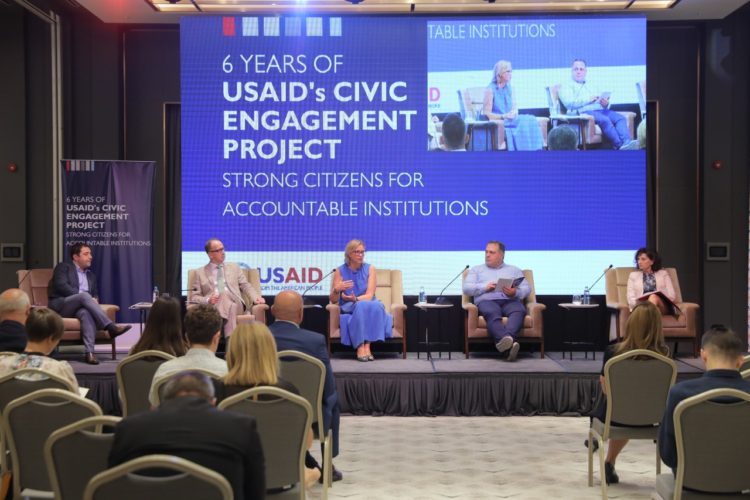
Completion of USAID North Macedonia’s Civic Engagement Project
IDEAS DePo was a part of the celebration on completion of USAID North Macedonia‘s Civic Engagement Project, which facilitated dialogue between citizens and the Government of North Macedonia on important social issues, strengthened constructive engagement by civil society organizations on policies and issues that target anti-corruption, transparency, and rule of law, and increased and sustained youth engagement in public life. At the event, H.E. Kate Marie Byrnes, Ambassador of the United States of America to North Macedonia, Mark Dietrich, Vice President of the East-West Management Institute and Slavica Grkovska, Deputy Prime Minister in charge of Good Governance Policies addressed the participants.
In her address, H.E. Kate Marie Byrnes, Ambassador of the United States of America to North Macedonia, noted, “You clearly see the country’s path to the EU and recognize what North Macedonia’s citizens deserve. I hope that leaders throughout the political structure see how critical it is to change the systems and networks that allow corruption to cause such harm. As President Biden has said, “corruption is a cancer: a cancer that eats away at a citizen’s faith in democracy, diminishes the instinct for innovation and creativity…. It wastes the talent of entire generations. It scares away investments and jobs.” While we have made progress, there is much more work to be done and we will continue to stand with North Macedonia as you tackle the hard reforms to ensure that all are equal before the law and corruption is not tolerated.“
IDEAS DePo, under the auspices of the USAID Civic Engagement Project (CEP) assistance to the Vice Prime Minister for Good Governance, implemented the activity “Reforms in the Inspection System” in close cooperation
with the Inspection Council as the main stakeholder.
Under this Project, a number of activities were implemented aimed at further development of the overall inspection
framework and relevant strategic documents, improvement of the legislative framework, as well as raising the
awareness of the inspection procedure that can be easily understood by businesses and citizens.
This activity incorporated a highly participative and collaborative approach by actively engaging all key
stakeholders such as the relevant government institutions, as well as the private sector, NGOs, academia and other
relevant players, through the organization of several consultation sessions and workshops.






